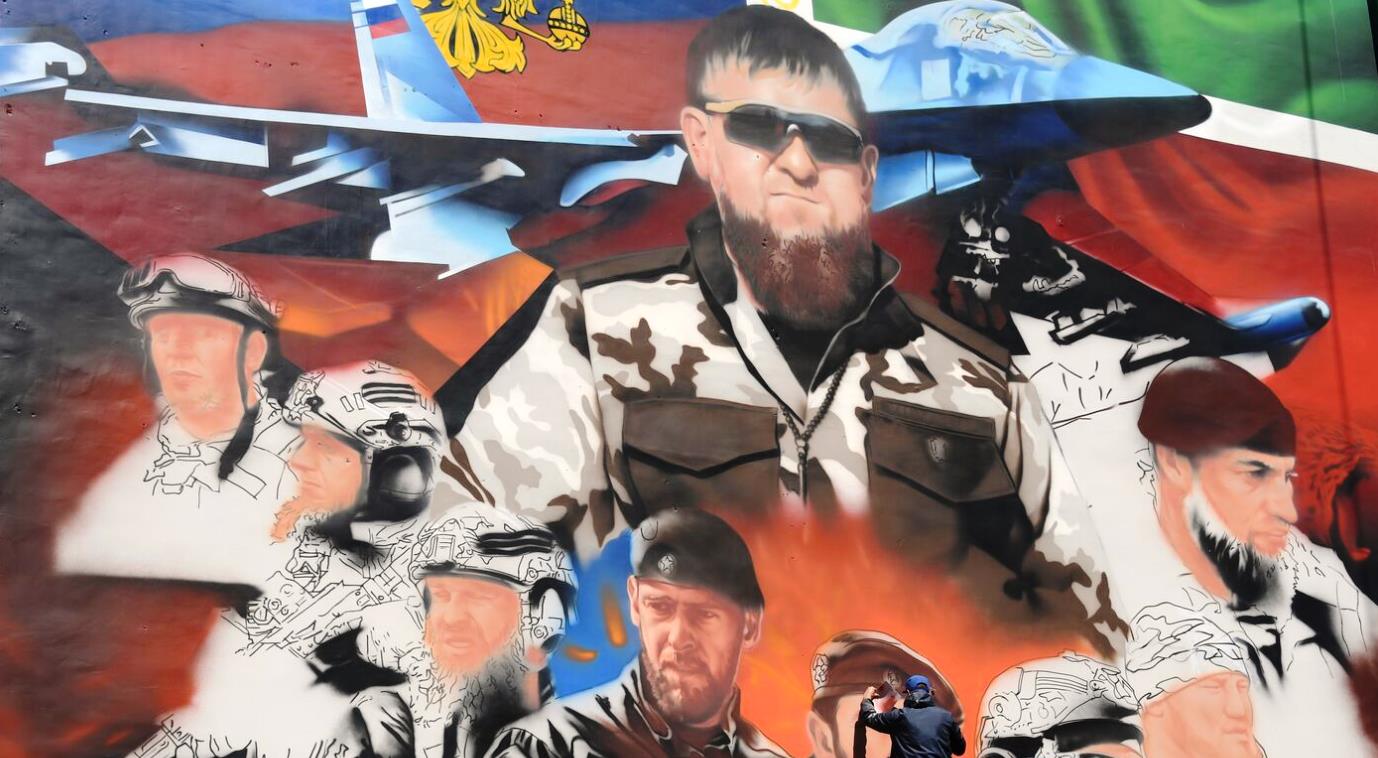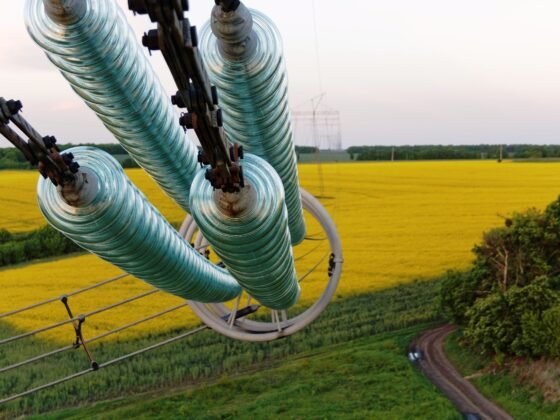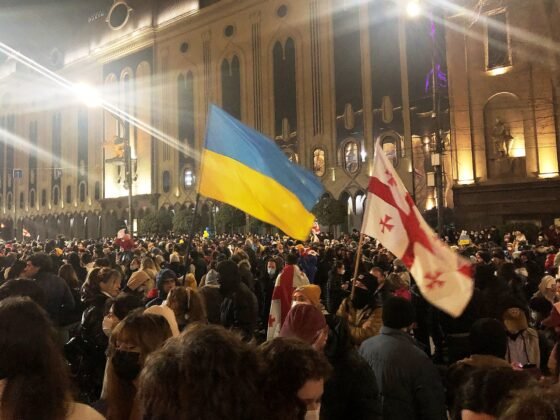Following the call for partial mobilization announced by Russian President Vladimir Putin on September 21, the Head of Chechnya, Ramzan Kadyrov, did not remain silent. In his usual demonstration of loyalty, he encouraged all Chechens to fight “these [Ukrainian] devils” and “use every opportunity to put an end to this scum.” However, shortly after, he refused to obey the mobilization decree, saying that Chechnya had already contributed to Russia’s military operation in Ukraine more than any other region of Russia.
This rather unexpected decision of Kadyrov to reject his patron’s idea was announced after a small anti-war protest organized by a group of Chechen women in Grozny. This protest and Kadyrov’s disobedience reignited a debate in social media about the possibility of Chechen dissent or separatism that could be sponsored by Kadyrov himself or by the pro-independence Chechen politicians that are still active in Europe. To assess the probability of an independence scenario, it is necessary to analyze the readiness of the Chechen and Russian populations for it, as well as the position of the West regarding such a development. In short, a grassroots rebellion is unlikely, particularly if Kadyrov adroitly responds to his people’s sensitivities and orientations.
How Significant Is the Chechen Factor?
The beginning of the full-scale Russian invasion of Ukraine in 2022 increased the significance of Chechens on the international stage. One consequence of the second Russo-Chechen war (1999-2009) was to end active Chechen independence claims. Since then, Chechens would appear in the world news quite often, but in a different and usually controversial context related to Islamic terrorism. Indeed, even after Russia’s then-president Dmitry Medvedev canceled the “counter-terrorist operation” in Chechnya in 2009, as the second Russo-Chechen war was officially known, Chechens were actively fighting against Russia and its allies around the globe; their “footprint” was found in places where terrorist attacks had hit Russia; their participation was notable in the civil war in Syria starting in the early 2010s; “battalions” of volunteers defended the unity of Ukraine from the beginning of the clashes with separatists in Donbas in 2014. These endeavors are associated with those Chechens who either found refuge in Europe after being persecuted by Kadyrov’s regime or continued their war with Russia from abroad, refusing to accept defeat in the second war in Chechnya.
The Chechens who live in Chechnya and serve the current regime gained fame for different reasons. By order of Ramzan Kadyrov, they supported the Russian regime and Putin personally. For example, Chechen mufti Salah Mezhiev blessed Chechen battalions sent by Kadyrov to wage “jihad” against “the enemies of Islam” in Syria on President Bashar Al-Assad’s side along with Russian troops. The “footprints” of Kadyrov’s assassins were found around the murders of Putin’s or Kadyrov’s own regime critics, such as Anna Politkovskaya (2006), Nataliya Estemirova (2009), and Boris Nemtsov (2015).
What changed with the beginning of the war in Ukraine is that more Chechens from the diaspora saw in it a real opportunity to settle scores with Russia, resulting in a growing number of volunteers supporting Kiyv. These volunteers are very active in making political statements and circulating them via social media. In their statements, they explain they came to help Ukrainian forces break the Russian regime, which would then contribute to Chechen liberation. Moreover, they argue that they are taking steps to renew actual fighting for Chechnya. Accordingly, they divided Chechnya on paper into military sectors to start “taking control over the territory when the time is right.” Similar statements were made by some Chechen exiled politicians who visited Kyiv to express support and ensure future connections with Ukraine.
The development of this scenario is not totally unrealistic, especially after Ukraine’s parliament recognized Chechnya as a territory temporarily occupied by Russia. The result of the war and any success in bringing accountability to the Russian regime for its crimes would be supported by this Chechen segment, which in turn would bolster the Chechen claim for independence. However, are Chechens in Chechnya ready to rebel and interested in independence?
Assessing the Possibility of Rebellion at Home
Historically, from the nineteenth century, when Chechnya was conquered and incorporated into Russia, Chechens never gave up on their attempts to regain their freedom. As Robert Schaefer in his book The Insurgency in Chechnya and the North Caucasus (2010) claims, years and decades could pass witnessing the Russian state and the Chechen nation cohabitating peacefully, and yet, once the opportunity to claim independence would arise, the Chechens would never miss it. This pattern of behavior is observable even from well-known historical facts. Since the end of the Caucasian War in the nineteenth century, the Chechens tried to regain their independence at least three times: after the Russian revolution and Bolshevik coup in 1917, with the beginning of World War II, and with the collapse of the Soviet Union.
Is the war in Ukraine really of the same or similar magnitude, giving some Chechens real hope to fulfill their dream? Probably not, but it has the potential to, in which case Chechens might have a real opportunity again. Would they miss it? Probably not. Will it be successful? It is questionable because a) a significant portion of the Chechen population either supports Russia or does not want a repetition of the recent wars, b) the resistance and pro-independence movement of the Chechens became deeply fragmented and somewhat unpopular due to inner disagreements, c) Kadyrov has built a menacing force that has managed to cow the population into submission.
However, the recent memory of humiliation at the hands of Russian troops, let alone the trauma of the Deportation in 1944, has pushed for the idea of separation and promoted resistance to the current pro-Russian regime. The rebellion of Chechnya would be much more probable if defeat in Ukraine would provoke changes within Russia itself.
Would the Russian People Even Consider Chechen Independence?
The Russian population’s readiness for change is linked to the stability and strength of Russia’s regime, which in turn can be measured by the loyalty of the military/police forces. Both are interdependent factors because neither the military nor police forces would stand up against mass protests. After all, that would mean encountering and maybe using weapons against their own families. However, is the Russian population willing to rise and protest? Is it ready to face radical changes and, probably, experience a repeat of the chaos and instability of the 1990s? Does it believe in its own strength? The brief answer is no.
More than twenty years of Putin’s rule have demonstrated that the regime has not only survived economic crises, sanctions, critique, and protests, but it has even managed to brainwash a significant part of the population. The support demonstrated by many Russians for the war in Ukraine suggests that the rhetoric of denazification coupled with the idea that in Ukraine, Russia defends itself from the expansion of a hostile West was a good choice.[1] It evoked collective memories, a combination of pride and a desire to return to the glorified Soviet past, and the trauma of World War II (Great Patriotic War), in which most of the Russian population lost a direct relative. The protests that broke out in major Russian cities in reaction to the partial mobilization announced by Putin demonstrated that a certain segment of Russians does not support this rhetoric, though. However, the scale of these protests is so small that they can neither trigger major changes in the country nor gain the neutrality/support of the police and military.
Like all other protests that Putin’s Russia has witnessed, the anti-mobilization protests were quickly quelled, suggesting that Russian civil society has not matured enough for large political changes. To some extent, this immaturity, which the war in Ukraine can still change, can be attributed to three factors: 1) the success of Russian propaganda, 2) Putin’s strong grip on power, and 3) memories of the 1990s that bring associations with economic downturn, chaos, humiliation, and misery and link them to democracy. Either way, the situation discussed above does not allow for expecting large-scale changes on the Russian political stage unless there is an intervention of unforeseen factors, such as health issues that could befall the leader. On top of this, the population’s support for the war in Ukraine demonstrates that the Russians are not ready to see Chechnya independent.
Is the West Interested in Chechnya’s Independence?
The last aspect to consider is the willingness of the West to invest in Chechnya, which was very limited before and is hardly probable now. In the 1990s, the West did not cheer the dissolution of the Soviet Union. It feared the nuclear proliferation that the collapse of the Soviet empire could provoke. Once that issue was solved, after the former Soviet republics’ self-proclaimed decision to refuse nuclear weapons, the disappearance of the Soviet Union from the world maps became more acceptable and seemed like an astounding outcome.
However, the further dissolution of Russia was not in the plans of the West, as it could have raised more security-related issues. Hence, the world left the Chechens mostly alone in their struggle for independence from 1994-1996 and even supported the financially and economically weak Russia, which spent most of the money it received on its military campaign in Chechnya. Despite all the odds, Chechnya managed to win that war and gain its factual independence after signing a peace treaty with Russia in 1997.
The economic blockade that the Chechens faced, and the world’s indifference to the situation in the ruined republic with a population of 800,000 led to a rise in criminal activities and a spoiled image. This would not have happened if Chechnya had received financial aid from the West as Kosovo did. Instead, the deteriorated security situation in the republic provided Russia with a justification for a new military campaign, which was framed as a counter-terrorist campaign and gained support or tacit agreement from the West.
The indirect outcome of that war and Russia’s success in creating a puppet regime in Chechnya can be seen today in Ukraine. Moscow’s success in Chechnya boosted authoritarianism and the predatory attitude of the Kremlin, which will continue to threaten the stability of the world for as long as Putin’s regime exists. If renewed, this understanding could prompt the West to support the Chechen claim for independence. Yet, having in mind the prevailing association of Islam with terrorism in the West, Chechnya, with its Muslim population and unconventional warfare methods, has little chance of winning the hearts and minds of Western political forces.
Conclusion
There are no good grounds for thinking that Chechnya will become an independent state any time soon. The population in Chechnya itself is not ready to rebel against Russia, and neither Russian society nor Western political forces are interested in its independence. However, as history teaches us, the situation might change, and this change can be quite sudden. We have seen numerous severe political and ethnic conflicts in the former Soviet Union, such as the Chechen wars (1994, 1999), the Rose Revolution (2003), the Adjara crisis (2004), the War in Ingushetia (2007), Russian-Georgian War (2008), Tulip Revolution (2005), Euromaidan (2014), Kazakhstan land reform protests (2016), and Kyrgyz unrest (2010, 2020). Unexpectedly quick and successful counter-offensives by Ukraine, which are not out of the question, can provoke a rebellion against and even the collapse of Kadyrov’s regime.
[1] However, according to various public opinion polls, “denazification” was the least efficient in rallying support for the war.
Marat Iliyasov is Visiting Assistant Professor at Miami University of Ohio.
Image credit (Kallinikov)











